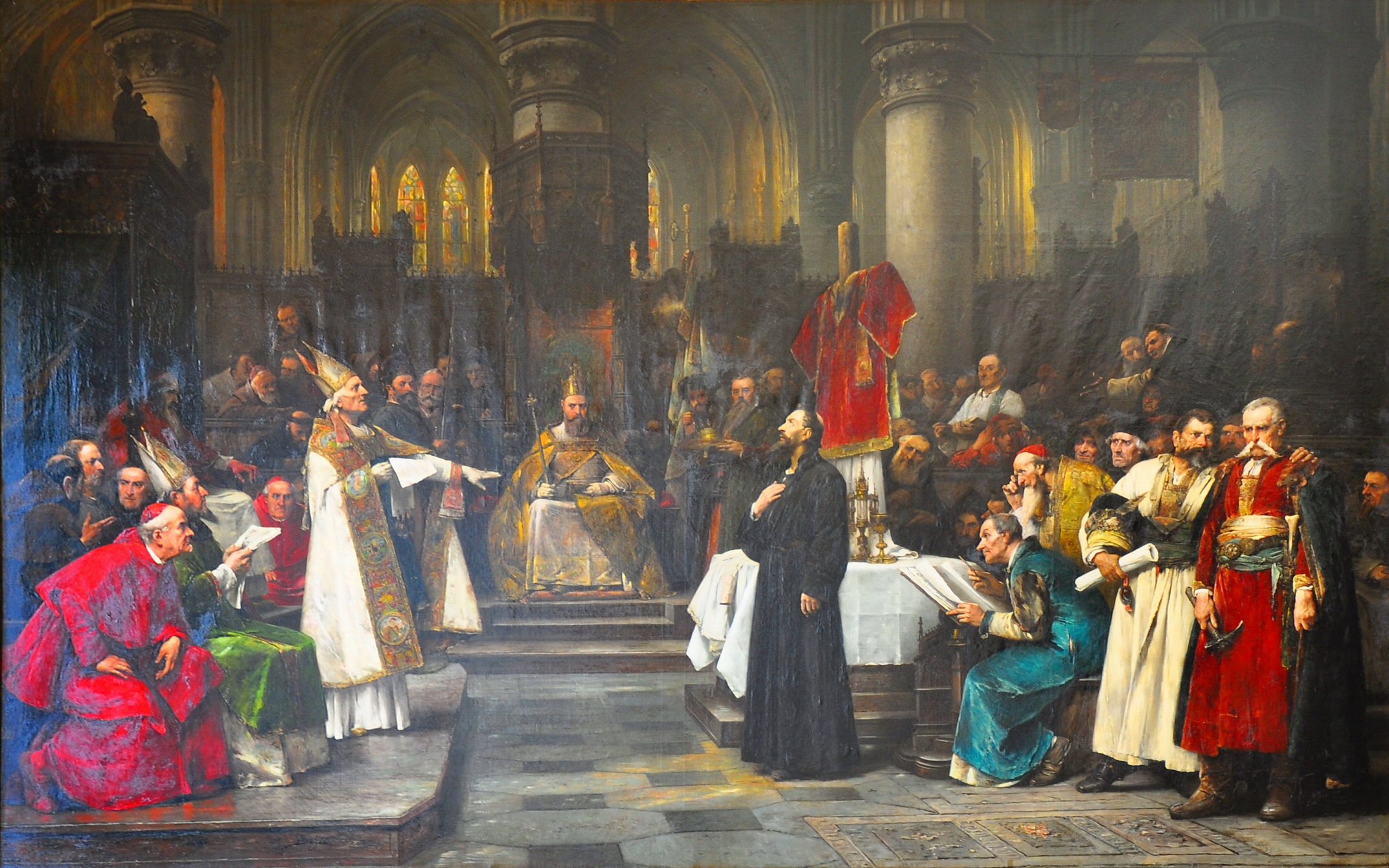Council of Constance
 The Council of Constance (; ) was an ecumenical council of the Catholic Church that was held from 1414 to 1418 in the Bishopric of Constance (Konstanz) in present-day Germany. The council ended the Western Schism by deposing or accepting the resignation of the remaining papal claimants and by electing Pope Martin V. It was the last papal election to take place outside of Italy.
The Council of Constance (; ) was an ecumenical council of the Catholic Church that was held from 1414 to 1418 in the Bishopric of Constance (Konstanz) in present-day Germany. The council ended the Western Schism by deposing or accepting the resignation of the remaining papal claimants and by electing Pope Martin V. It was the last papal election to take place outside of Italy.The council also condemned Jan Hus as a heretic and facilitated his execution by the civil authority, and ruled on issues of national sovereignty, the rights of pagans and just war, in response to a conflict between the Grand Duchy of Lithuania, the Kingdom of Poland and the Order of the Teutonic Knights.
The council is also important for its role in the debates over ecclesial conciliarism and papal supremacy. Constance issued two particularly significant decrees regarding the constitution of the Catholic Church: ''Haec sancta'' (1415), which asserted the superiority of ecumenical councils over popes in at least certain situations, and ''Frequens'' (1417), which provided for councils to be held automatically every ten years. The status of these decrees proved controversial in the centuries after the council, and ''Frequens'' was never put into practice. Though ''Haec sancta'', at least, continued to be accepted as binding by much of the church up to the 19th century, present-day Catholic theologians generally regard these decrees as either invalid or as practical responses to a particular situation without wider implications. Provided by Wikipedia
-
1Created 1683“...Council of Constance...”
Location: University Libraries of CUA, Catholic University of America
Conference Proceeding Book -
2Created 1697“...Council of Constance...”
Location: University Libraries of CUA, Catholic University of America
Conference Proceeding Book



